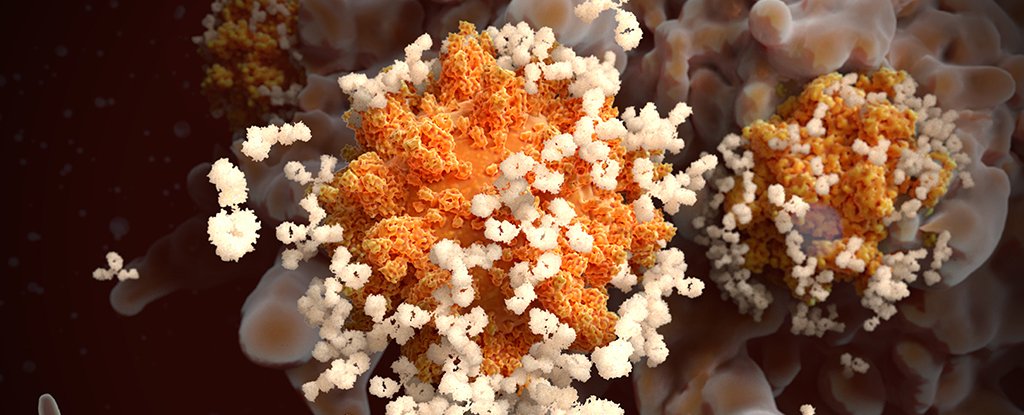Fears that our immune system might quickly forget its encounter with the SARS-CoV-2 virus are increasingly unfounded with an Australian study revealing that our blood is still capable of building up a strong response eight months after infection.
This is good news for those concerned that the COVID-19 vaccines will not provide the necessary protection period to control the spread of the virus by the population.
“This has been a black cloud hovering over the potential protection that could be provided by any COVID-19 vaccine and gives real hope that once a vaccine or vaccines are developed, they will provide long-term protection,” said the immunologist. from Monash University Menno van Zelm.
Although it is still too early to say how long immunity to this specific coronavirus can last, we can be confident that time is likely to be on our side.
In a collaboration between Monash University, Alfred Hospital and the Burnet Institute in Melbourne, the researchers analyzed blood samples collected from 25 volunteers diagnosed with COVID-19.
Each sample provided a snapshot of the state of the immune system, from just four days after infection to eight months.
Another 36 individuals with no history of the disease also provided one or two blood samples for comparison.
COVID-positive samples suggest that fluctuating concentrations of anti-SARS-CoV-2 antibodies begin to disappear just 20 days after the onset of symptoms, a finding that is in line with previous studies, suggesting that antibody levels drop rapidly, especially in mild cases of COVID-19.
While this is not a surprise in itself, it has caused consternation among immunologists about whether we should expect waves of reinfections in the coming years.
Antibodies are like pictures of the immune system, allowing it to promptly attack past offenders who dare to show their face again. Without them, it is very easy for a past infection to return immediately.
In the case of some pathogens, these chemical ‘wanted’ posters have been around for years. Measles, for example, elicits an antibody response that barely decreases throughout life.
Other disease agents disappear from memory a little faster. For tetanus, this disappearance act takes just over a decade, requiring frequent reminders in the form of booster vaccines to induce the system to print a new batch of antibody ‘photos’ again.
The key to this antibody printing service is white blood cells called memory B cells. Formed during an infection to print specific antibodies for an attacker, these cells can hide for decades after the heat subsides, ready to generate a new supply of antibodies at any time if the pathogen reappears.
To see if a known COVID immune system still had enough B cells to do the job after just a few months, the researchers introduced fluorescently labeled pieces of SARS-CoV-2 to infected blood samples.
The analysis not only revealed a significant response in each of the COVID-19 blood samples, but allowed the team to determine which types of memory B cells were reacting to which specific piece of the virus’s body.
“These results are important because they show, definitively, that patients infected with the COVID-19 virus do in fact maintain immunity against the virus and the disease,” says van Zelm.
And since the proteins analyzed by the study are considered to be the main targeting sites, we can expect that most vaccines will also provide a good level of immunity for at least eight months.
Besides that? Time will tell. Hopefully, we can bring news in the coming years of continued immunity that lasts well beyond expectations.
For the pandemic to be well controlled, if not completely eradicated, we will need at least 70% of a population to be immune within the same time window. Only then can we be sure that the virus will have so few places to hide, it can simply disappear.
For the moment, we can be sure that the window is eight months wide. Let’s hope it’s enough.
This research was published in Scientific Immunology.
